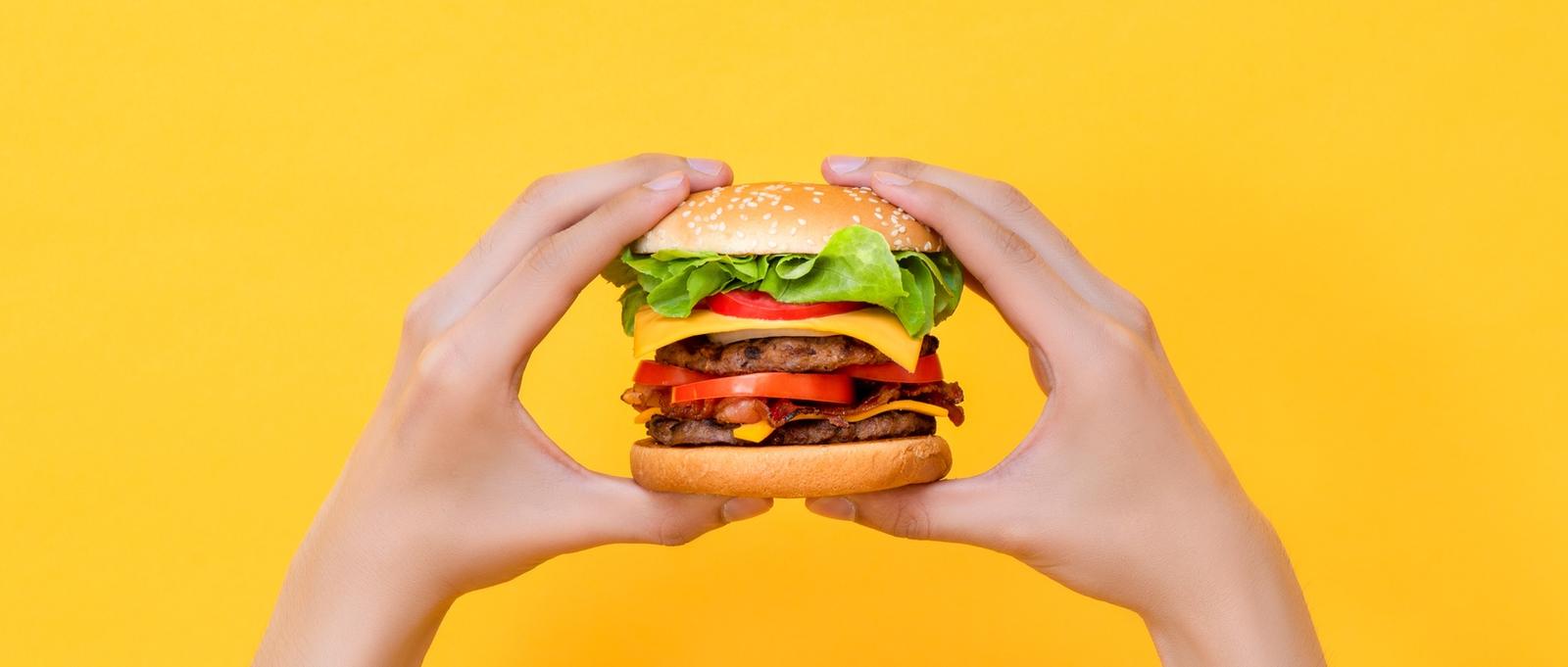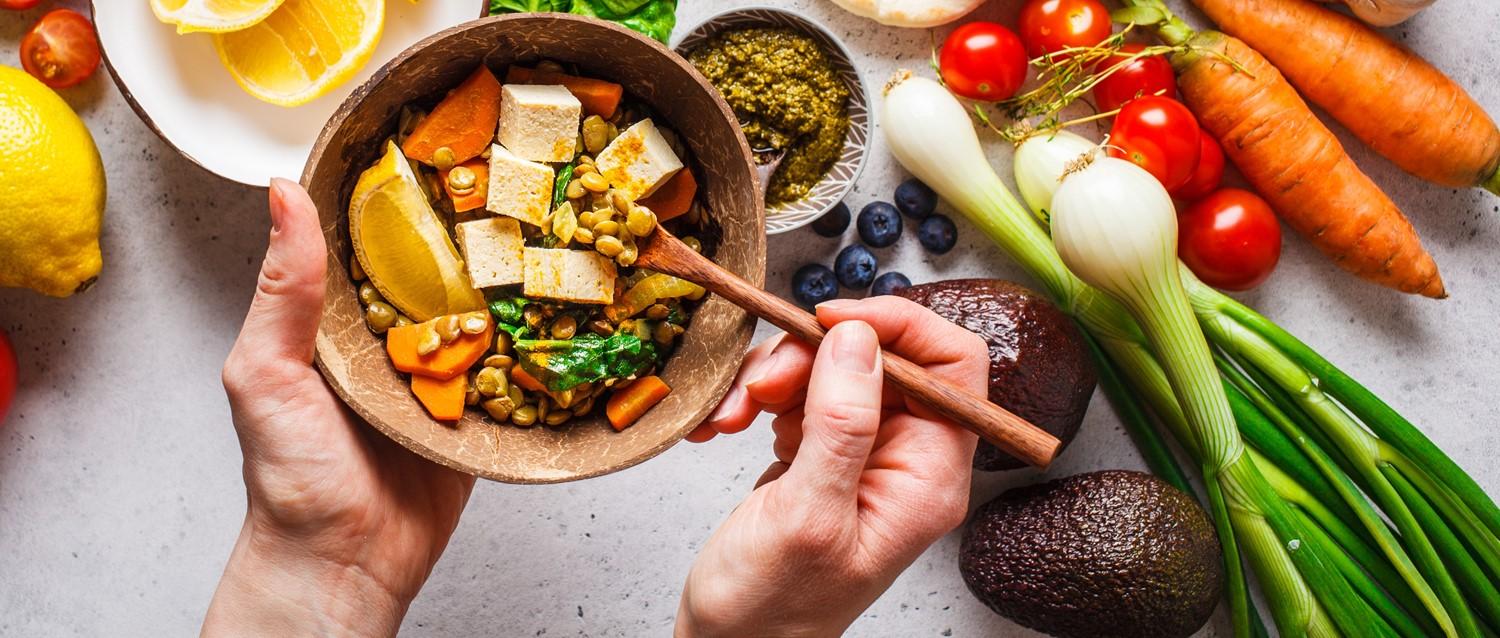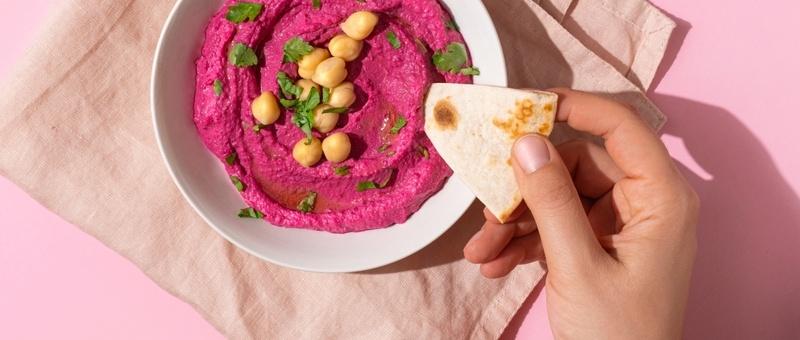
Comment éviter les aliments ultra-transformés quand on est végétalien ?
Révision par les pairs : Dr Krishna Vakharia, MRCGPDernière mise à jour par Victoria RawDernière mise à jour 27 Jan 2025
Répond aux besoins du patient lignes directrices éditoriales
- TéléchargerTélécharger
- Partager
- Langue
- Discussion
More people are cutting out meat in favour of plant-based diets for ethical, environmental and health reasons. But not all plant-based foods - either vegetarian or vegan - are as healthy as we think they are. In fact, some are classed as ultra-processed foods, which have been linked to heart disease and cancer.
Dans cet article :
Following a plant-based diet is a great way to eat more fruits, vegetables and pulses. These foods contain lots of nutrients that are good for us - as well as plenty of fibre to keep our digestive systems healthy.
Vegetarians, vegans, and pescatarians - those that only eat fish - also avoid eating red meat or processed meat like sausages and bacon, which contain more nitrates, salt, and fat and have been linked to cancer. And of course, there are environmental benefits to eating less meat, including lowering carbon emissions.
Eating more plants and less meat also reduces your chance of developing health problems like heart disease. Studies show that people on plant-based diets have a lower likelihood of heart attack and stroke compared to those on omnivorous diets - eating meat and vegetables.
However, research also shows a plant-based diet isn’t always healthy. Imitation meats or meat substitutes - such as vegan nuggets, sausages, and burgers or fake chicken pieces and ready meals - are sometimes classified as ultra-processed foods.
These are convenience foods that contain additives like sweeteners, salt, and artificial flavours but contain few nutrients.
Poursuivre la lecture ci-dessous
Why are some plant-based foods ultra-processed?
Reema Pillai, a registered dietitian at Dietitian Fit, says that the rise in vegetarianism and veganism has led to a demand for meat alternatives in recent years.
She says that while these may seem like a great way to help reduce meat consumption - if that is your aim - it is also important to keep in mind that many of these alternatives would be classed as ultra-processed foods.
"Often, these foods contain additives such as emulsifiers, texturisers and colours," she explains. "They may also be classed as high added salt, fat or sugar foods.
It’s important to look at the overall processing of a plant-based product to understand its nutritional profile and to ensure it is actually a more nutritious option."
There’s no denying that eating less meat - and particularly red meat - can come with health benefits. But ultimately, meat and fish in their purest form are unlikely to be heavily processed because they are a single ingredient food.
When we try to recreate them using ingredients like soya, bean or pea protein, we have to process them to make them look and taste palatable. This means adding salt, sugar, fat and other additives to increase taste and prolong their shelf-life. However, we assume they’re healthy because of the 'plant-based' label.
Should we be eating plant-based alternatives?
Often, vegan or vegetarian meat alternatives or ready meals contain less saturated fat than animal-based products. So ultra-processed or not, you’ll be eating less saturated fat and that’s a good thing. However, any ultra-processed foods still contain more sugar, salt and other additives to provide flavour or texture.
Eating ultra-processed plant-based foods every so often is unlikely to cause any health problems. But overall - as is the case with any ultra-processed foods - it is probably better to eat them in moderation.
Poursuivre la lecture ci-dessous
How to eat less vegan or vegetarian ultra-processed foods
Pillai advises you pay attention to the nutrient content of convenience foods when at the supermarket. Look at the ingredients list - if it’s very long and contains things you’ve not heard of, it’s probably very processed.
It’s not easy to eat healthily all the time when you’re busy. But cooking meals or sauces in batches and freezing them can make things easier when you’re tired or don’t have much time.
Lentils, beans or other pulses like chickpeas can bulk up a meal easily without the need for fake meats. Garlic, herbs and spices can make a dish tasty without additives like sweeteners or artificial flavours.
Pillai says: "Overall, whole foods that are plant based, are considered the most beneficial to our health, such as fruits, vegetables, grains, pulses, unprocessed soy, nuts and seeds, rather than vegan products which have undergone a high level of processing."
Patient picks for Vegan and vegetarian

Régime et nutrition
Quelle est la différence entre les régimes végétalien et végétarien ?
Chaque année en Grande-Bretagne, nous sommes de plus en plus nombreux à choisir de supprimer la viande et de suivre un régime à base de plantes. Quelle est la différence entre les régimes végétalien et végétarien, et comment pouvons-nous être sûrs d'obtenir tous les nutriments dont nous avons besoin ?
par Amberley Davis

Régime et nutrition
5 easy vegan swaps for Veganuary 2026
If you enjoy meat, the idea of an entirely plant-based diet can be very daunting. What if your cravings for bacon become too strong? And how many more recipes will you need to learn? Here we talk to Chef Isabella Flint about making Veganuary a little easier. She shares her five easy vegan swaps to help curb your meat cravings.
par Victoria Raw
Poursuivre la lecture ci-dessous
Historique de l'article
Les informations contenues dans cette page ont été évaluées par des cliniciens qualifiés.
Prochaine révision prévue : 27 janvier 2028
27 Janvier 2025 | Dernière version
27 septembre 2023 | Publié à l'origine
Auteur: :
Lydia Smith

Demandez, partagez, connectez-vous.
Parcourez les discussions, posez des questions et partagez vos expériences sur des centaines de sujets liés à la santé.

Vous ne vous sentez pas bien ?
Évaluez gratuitement vos symptômes en ligne
Inscrivez-vous à la newsletter destinée aux patients
Votre dose hebdomadaire de conseils santé clairs et fiables, rédigés pour vous aider à vous sentir informé, confiant et maître de la situation.
En vous abonnant, vous acceptez notre politique de confidentialité. Vous pouvez vous désabonner à tout moment. Nous ne vendons jamais vos données.